EU referendum: How will official lead campaigns be chosen?
- Published
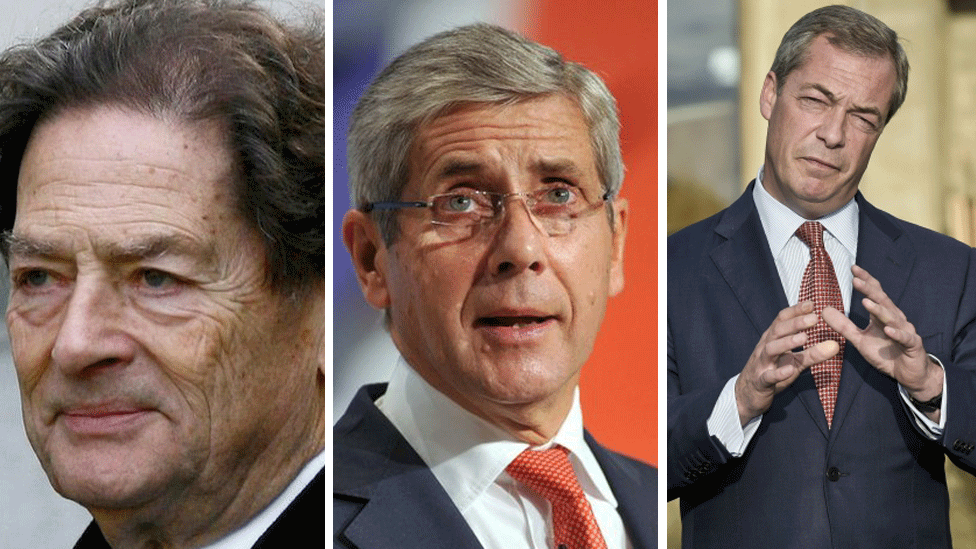
Lord Lawson, Lord Rose and Nigel Farage are backing different groups
Campaigning for the EU referendum is effectively under way already even though we don't yet know when it will be held or what the final package of reforms to the UK's membership that David Cameron will put to the British public.
Another unknown factor to add to the mix is the question of which will be the official campaigns on the In/Remain and Out/Leave sides.
While a plethora of groups have been set up to argue the case for the UK to stay in or leave the EU, to quote Christopher Lambert from the cult movie Highlander, "there can be only one" when it comes to the official lead campaign for either side. So how does the process work?

What is a lead campaign?
Referendums are relatively rare in British political history but when they do happen, they are governed by a series of protocols and rules enshrined in law. One of these is that a lead campaign is officially designated on each side, if it meets certain criteria.
For instance, in the 2014 Scottish independence referendum, Better Together was chosen as the official pro-UK lead campaign while Yes Scotland was chosen as the official pro-independence lead group.
The Electoral Commission, which is in charge of making sure the EU referendum is a fair contest, will make the decision. The choice is very important, not merely for the increased media profile it confers on the chosen campaigns but also for the financial benefits.

What are the benefits?
The official campaigns will get access to a grant of up to £600,000, an overall spending limit of £7m, campaign broadcasts on TV and radio, free mail shots and free access to meeting rooms.
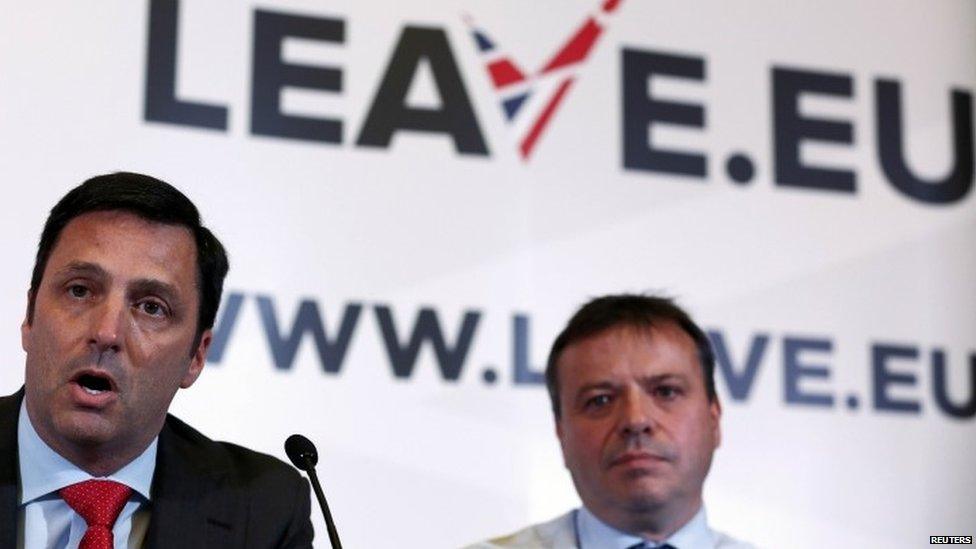
Arron Banks (right) is the engine behind the Leave.EU campaign
Other groups are free to run their own campaigns but they will be limited to a spend of £700,000 if they register with the Electoral Commission and will have to report the source of donations. If they don't register with the Commission they will be limited to spending less than £10,000.

Who is in the running?
On one side of the fence, the state of play looks relatively straightforward.
Britain Stronger In Europe is the main, and as yet unchallenged, campaign group making the case for the UK's continued membership of the EU.
Although the SNP and Labour have both said they will run their own separate campaigns, and there are other internal Tory groups, this umbrella body - which is chaired by former M&S chair Lord Rose - commands broad support among those who believe the UK's future lies within the EU.
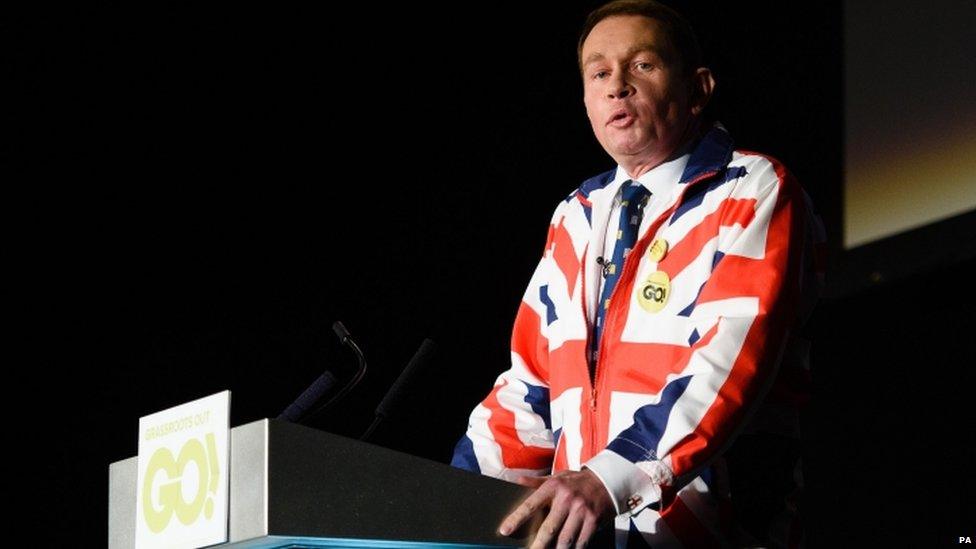
Several Tory MPs have rallied behind the Grassroots Out movement
However, it is a very different picture among those arguing that leaving the EU will benefit Britain. At the moment, there are three rival groups who could all ultimately vie for the nod from the Electoral Commission.
Six months ago, it looked like a straight fight between Vote Leave, external and Leave.EU. The former was spawned out of the Business for Britain group, a longstanding Eurosceptic lobby group which campaigned for the UK to overhaul its status with the EU.
It has historic links with the Conservative Party - it is now chaired by former Conservative chancellor Lord Lawson and its campaign director is Dominic Cummings, a former special adviser to Michael Gove. It also has experience of fighting and winning referendums. Its chief executive Matthew Elliott ran the successful No 2 AV campaign in 2011, which opposed any change to the electoral system. Its deputy chairman is Labour donor John Mills and it includes UKIP's MP, Douglas Carswell, amongst its backers.
Leave.EU, external is a different animal altogether. It was set up last July by businessman Arron Banks, a former Conservative donor who became one of UKIP's biggest supporters in the run-up to last year's election, It has portrayed itself as more of a popular movement focused on immigration.
Relations between the two groups have never been cordial, amid claims of hidden agendas, differences in strategies, and failing to reach out to others in the Out camp.
Amid signs that their differences were irreconcilable, a new outfit - Grassroots Out, external - sprung up last month and has gained support.
GO was formed by Tory MPs Peter Bone and Tom Pursglove and Labour's Kate Hoey. It has since won the backing of UKIP leader Nigel Farage and the party's ruling body which described it as a "genuinely cross party, well organised, energetic campaigning group".

Why does all of this matter?
All of the groups concerned are making big play of their cross-party credentials and being a "broad church". This is not a coincidence.
Any group seeking the official designation has to meet a series of criteria, set down by the watchdog. In other words, it has to pass a series of tests. One of these is demonstrating that it commands support from across the political spectrum.
Does its objectives fit with the referendum outcome it supports?
How organised it is and how capable is it of representing its supporters?
Can it properly fight a campaign and is it financially sound?
The Electoral Commission has said it will chose "whichever of the applicants appears...to represent to the greatest extent those campaigning for that outcome".
However, it is not as simple as that. The watchdog has the power to reject all applications to be the lead campaign on the grounds they do not meet the criteria set down in the 2000 Political Parties, Elections and Referendums Act.
To do this, however, would be highly unusual and controversial.
Whichever Out campaign is chosen is likely to influence the tone and conduct of the campaign as well as who its figurehead is.
Nigel Farage is likely to play a much more prominent role if either Leave.EU or Go is chosen - with the campaign likely to have the issues of immigration and security at its heart.
Many Tory Eurosceptics - including a number of Cabinet ministers - will feel more comfortable with Vote Leave, which wants, according to UKIP MP Douglas Carswell, to have a "broad-based, optimistic, upbeat campaign", with a focus on what they claim will be the economic benefits of leaving the EU.
Labour Eurosceptics, at the moment, seem uncertain about which horse to back, with John Mills - the founder of Labour Leave - insisting that it remains affiliated to Vote Leave despite rumours to the contrary.

When will we know the result?
The watchdog has said it will publish details of the designation process once David Cameron has named the date for the referendum, which could happen as early as Monday 22 February, if a deal on his draft renegotiation package is agreed by EU leaders the previous weekend.
The timing of the process will be among details set out in legislation relating to the EU poll that will have to be approved by MPs.
With the prospect of the referendum itself taking place in late June, campaigners on both sides will be keen for the watchdog to make a speedy decision, potentially before the Easter holiday at the end of March.
The Scottish referendum campaigns were designated on 23 April 2014, just under five months before the referendum was held on 18 September. While the period is likely to be slightly shorter this time, activists will be arguing that time is of the essence in getting their message across.

Further reading on the UK's EU referendum
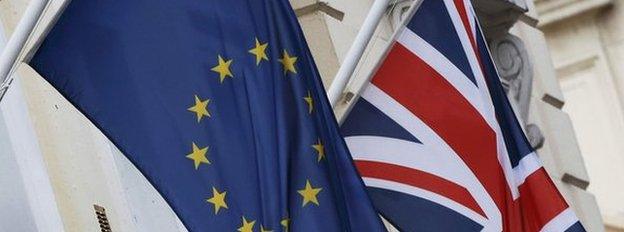
Guide: All you need to know about the referendum
EU renegotiation: Did Cameron get what he wanted?
Referendum timeline: What will happen when?
The view from Europe: What's in it for the others?
- Published5 February 2016
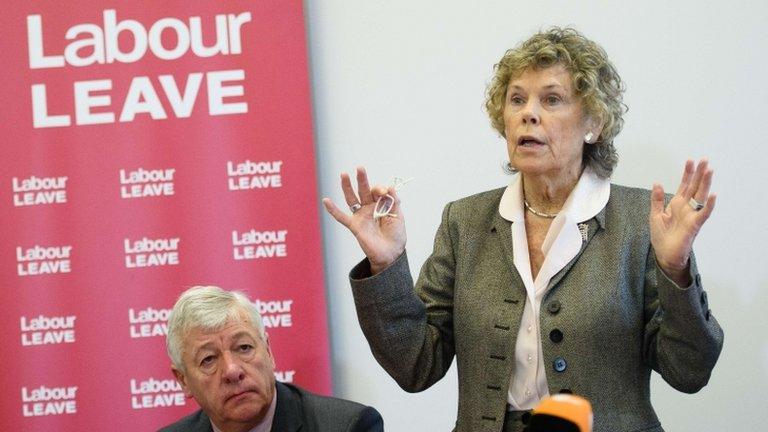
- Published23 January 2016
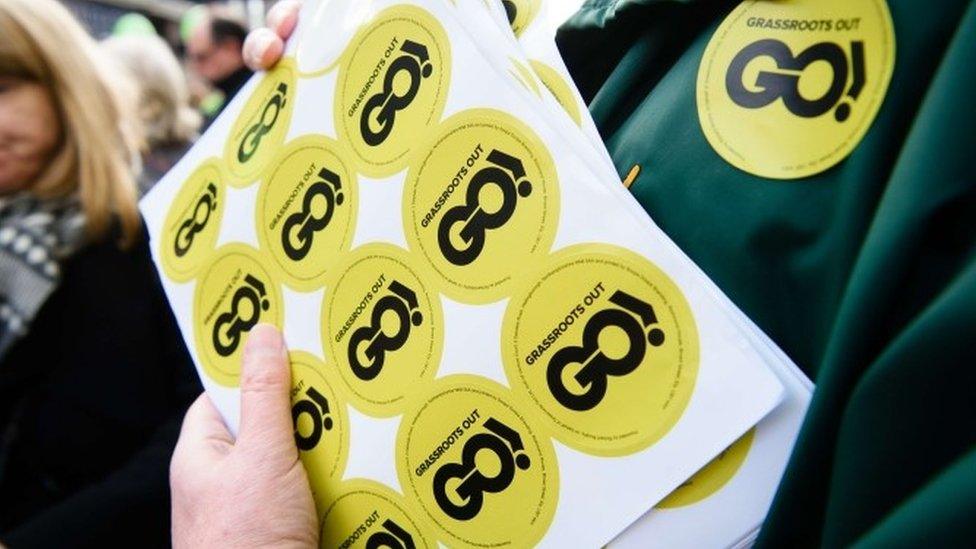
- Published30 December 2020
